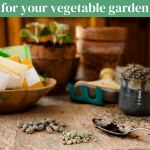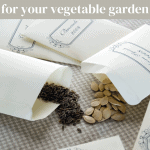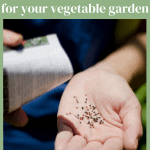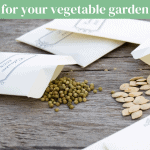Where To Buy The Best Vegetable Seeds
Our six favorite places to order vegetable seeds for our garden. We look for good quality, great selection and low cost.
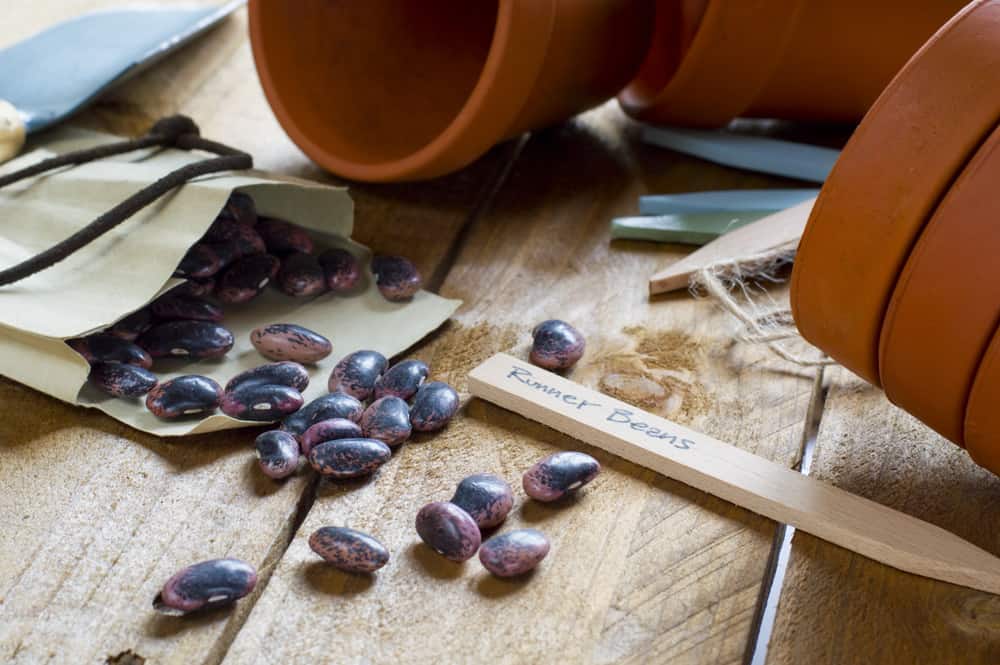
Seed catalogs always seem to arrive on the coldest day of January, when the garden is covered in a thick layer of snow. It’s the perfect time to hunker down and flip through page after page of colorful, eye-catching photos of fruits and vegetables. But there’s so much to choose from! It can be overwhelming if you’re new to gardening or just can’t make up your mind.
Over the years we’ve narrowed down a list of our favorite places to order seeds. We look for GOOD QUALITY, GREAT SELECTION and LOW COST. Where’s your favorite place to order vegetable seeds?
Terms You Need To Know When Buying Seeds
- Organic– Organic seeds are collected from plants grown in organic conditions established by the USDA National Organic Program. To be labelled organic, these plants and seeds have not been treated with synthetic pesticides, herbicides, fungicides and fertilizers and are not genetically modified (GMO).
- Open-pollinated– Open-pollinated plants are pollinated through natural mechanisms in the field, like insects or wind. These plants will produce seed that is “true to type” if they are pollinated by the same variety of plant. The offspring will have the same characteristics of the parent plants. You can think of open-pollinated varieties much like a pure dog breed. If you cross a husky with a husky, you get pure husky offspring.
- Heirloom– Heirloom refers to open-pollinated plants that have been maintained as a stable genetic strain for a long period of time (some say 40 years or longer). All heirlooms are open-pollinated, but all open-pollinated varieties are not necessarily considered heirlooms.
- Hybrids– Hybrids, often called F1 varieties, are the offspring of deliberate crosses between two different open-pollinated parental plants. Chosen parents will typically have certain desirable characteristics that are combined in their offspring. As an example, one parent plant produces a large tomato with low disease resistance and the other parent plant has great disease resistance but small fruit. The F1 offspring of this cross might have what you want—large fruit size with high disease resistance. But, this breeding line will not be genetically stable. If you plant the seeds of your hybrid tomatoes, they won’t be “true-to-type”. It’s like crossing hybrid offspring of a husky and a beagle—who’s knows what you’ll get. Selective breeding of hybrid offspring over several generations (aka de-hybridizing) can eventually result in a stable “true-to-type” open-pollinated variety of plant. In fact, all modern open-pollinated varieties (and pure dog breeds) are a result of this process.
- GMO (genetically modified organism)– GMO seeds are bred in the laboratory, not in the garden. Genes from one organism are inserted into the genome of another organism. A genetically modified seed does not occur naturally or through traditional crossbreeding techniques. Genetically modified seeds cannot be labeled organic. GMOs are used in commercial production, and seeds are not readily available to the home gardener. Some countries ban their use altogether.
Should I Use Open-Pollinated Or Hybrid Seeds?
We use both, depending on the crop. There is nothing intrinsically wrong with either. Remember that even the most beloved heirloom open-pollinated varieties were subjected to hybridization at some point in their history.
Tomatoes are the one crop where we almost exclusively buy heirloom open-pollinated varieties of seeds. Most hybrid tomato varieties were not bred for flavor, and, in our experience, heirlooms almost always have superior flavor. We grow a few hybrid cherry tomatoes, but the rest of our tomato patch is dedicated to heirlooms.
For most other crops, the difference in flavor between hybrids and open-pollinated heirlooms is not as stark, and in some cases hybrid varieties are much more vigorous and mature more rapidly than open-pollinated varieties. Broccoli is a good example.
Remember that if you want to save seeds you need to grow open-pollinated varieties.
Where We Buy Our Vegetable Seeds
- Fedco Seeds
This is our # 1 favorite company for ordering seeds. Fedco is a Maine based co-op that has a good selection of seeds at great prices. The catalog is black and white, so browse online if you want full-color visuals. They have an impressive selection of hybrid and heirloom seeds along with organic seeds. - Pinetree Garden Seeds
This company offers low prices for smaller quantities of seed. If you have a small garden or just want to try a new variety, this makes a lot of sense. They have a large selection of hybrid and heirloom seeds, with some organic offerings. - Baker Creek Heirloom Seeds
This company offers a great selection of heirloom and rare seeds that are reasonably priced. They have a nice, colorful catalog that is our favorite for flipping through for garden inspiration. They also have a good organic seed selection. - Johnny’s Selected Seeds
This 100% employee owned company has a great selection of seeds, but is more expensive than the other seed companies listed above. They have beautiful visuals and put a lot of marketing effort into farmer’s market growers. You get honest reviews of what to expect from each seed type. They offer a variety of organic options, and sell both hybrids and heirlooms. - Seed Saver’s Exchange
This a non-profit that collects and distributes thousands of rare heirloom varieties before they are lost. Many of their seeds are organic. Their seeds are high-quality and reasonably priced, and purchasing from them supports their mission to preserve garden diversity. - Botanical Interests and Renee’s Garden Seeds
We purchase seeds from these two companies because they are available at several local nurseries. They have a great selection of hybrid and heirloom seeds, with many organic offerings.
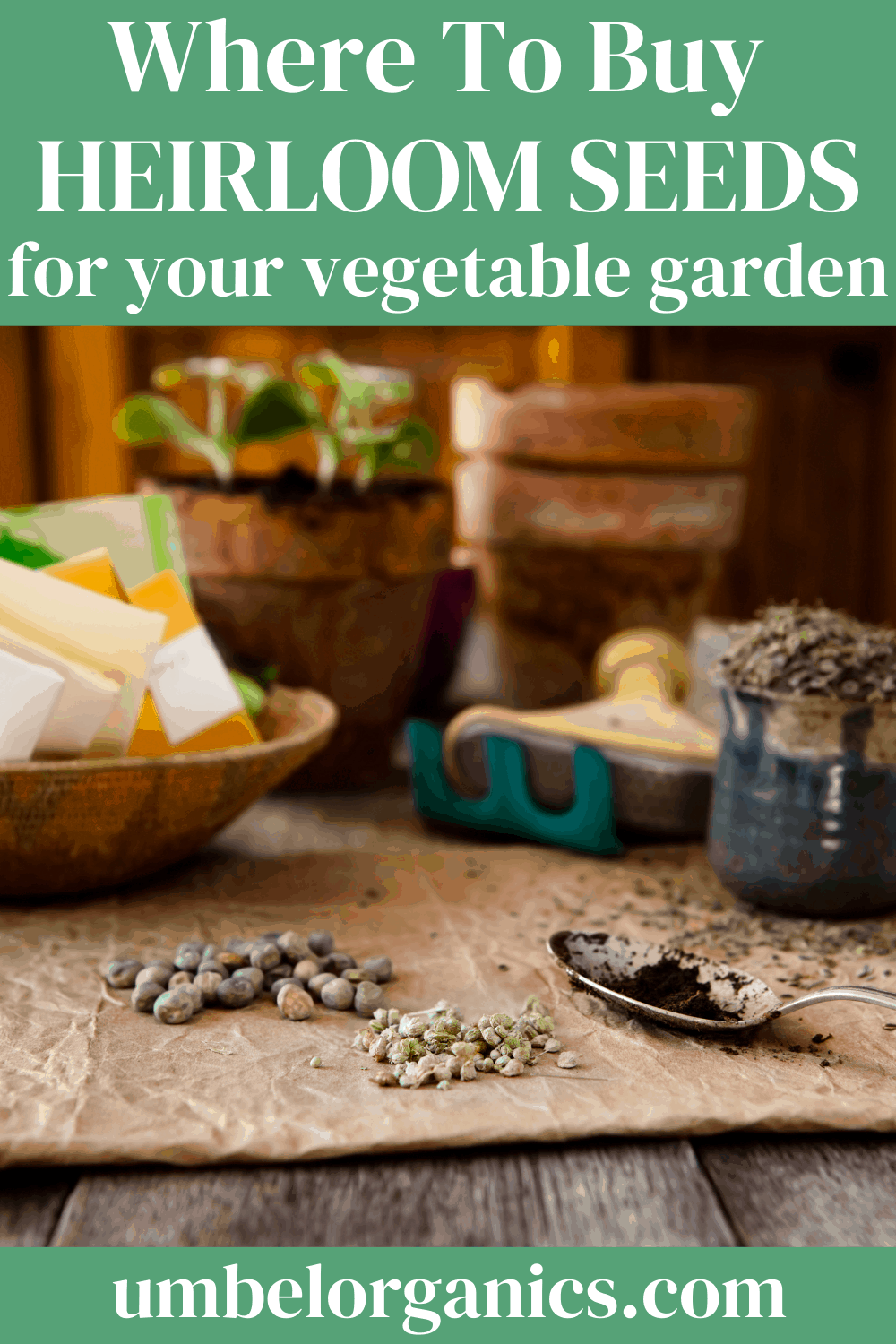
More Gardening Inspiration
Photo images via Adobe Stock. All infographic images created by Umbel Organics.

